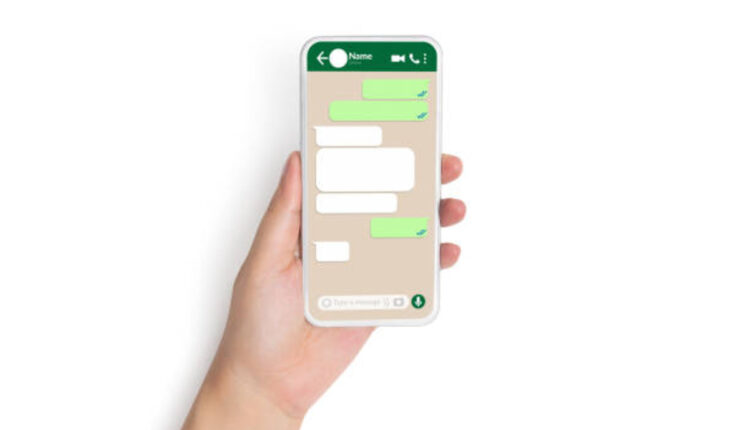Create a WhatsApp chatbot using various tools and platforms. The bot should have features that provide access to live agents in case complex questions or issues require more direct support. Get the Best information about whatsapp api for business.
Deliberate over your business goals and target audience to craft an efficient chatbot. Use friendly language and emoticons for interactions that feel more natural; request feedback regularly from users; update it as necessary.
How to build a chatbot?
Establishing a chatbot on WhatsApp is similar to creating one on other platforms, with the primary difference being its trigger: this could be anything from customer questions or comments sent directly to a business page through WhatsApp to queries sent directly from customers asking about products and services, to collecting customer data for customer analysis or processing refunds. Once it has been set up, this bot can then be used by businesses as a customer support agent, answering inquiries about products and services, or even collecting data or processing refunds automatically.
When building a WhatsApp bot, it is imperative to select a reliable chatbot-building platform. Some platforms do not permit creation without prior approval from WhatsApp, and others don’t include all the necessary capabilities for success, like supporting voice or video calls on WhatsApp.
Once you’ve selected a platform, create your chatbot flow by dragging and dropping elements available on the workspace. Start by adding an engaging greeting that encourages people to interact with your bot. Then, add User Input elements to capture responses, which you can use to customize people’s experience further.
To prevent your chatbot from becoming frustrating for users, make sure that you include an exit or fallback option for responses they don’t understand. Furthermore, periodically collect feedback from users so you can improve it over time.
Developing a personality for your bot
The personality of a bot determines how customers interact with it, so its design must reflect both audience needs and company core values. For instance, those using it in urgent customer service situations might prefer something serious and professional, while those designed for gamers or younger audiences could have more playful designs.
Designing a bot’s personality should be a deliberate endeavor that begins by carefully considering user goals and differentiating them from those of the bot itself. Once this step has been completed, determining its motivations and emotions should follow before mapping this information on a Bot Persona (a tool developed by Austin Beer to assist teams working collaboratively on creating better bot experiences).
A persona for your bot should include its motto, core desires and responsibilities, relationships with others, and language use (including use of emojis and slang). An ideal persona will differentiate itself from similar bots by having its own distinct voice that stands out among competitors—this is important since bots must sound human-like so that users feel connected to them. Testing the persona with real people will allow you to gauge its authenticity.
Creating a flow for your chatbot
Create a chatbot flow to outline the conversational path that your bot will follow when activated by users. Use different variables, such as the prompt types you wish to ask, whether information about certain products/services is requested by the user, live chat agents’ working hours, and the types of data you require the bot to collect from the user.
Once your bot is completed, testing it to ensure it functions as planned is key to its success. Testing should include using multiple devices to detect any blind spots in interaction and ensure that both UI and functionality remain consistent across platforms.
If your chatbot cannot respond to specific user inquiries, create a fallback that leads them directly to human support or your website with further details. This will reduce user frustration while simultaneously adding knowledge to the bot’s knowledge base. Be sure to ensure users know they’re interacting with a machine and that any personal data collected will be handled ethically and securely, and consider giving your bot a natural-sounding name with an image consistent with its persona.
Testing your bot
Through Kommunicate’s WhatsApp integration, it’s simple and efficient to test out your chatbot in WhatsApp. Just scan the QR code with your phone to start the connection; after 72 hours have passed or until a “STOP” message has been received from WhatsApp, simply send another bot ID such as “join xyz1234.”
E-commerce businesses can take advantage of a WhatsApp chatbot by using canned responses—templated responses to frequently asked questions—as an agent replacement and increasing efficiency. Furthermore, providing real-time customer support enables businesses to focus more on lead generation and sales growth than on human agents’ workload.
WhatsApp chatbots can not only respond to customer queries but can also assist them in placing reordering and return requests, provide shipping information such as tracking numbers or estimated delivery dates and times, and provide online catalogs of products and services with images, video links, text descriptions, price listings, and price breakdowns for easy browsing.
Before releasing your chatbot to WhatsApp, it is vitally important that it has been thoroughly tested. This will ensure it behaves strictly as intended without creating unintended results that could either amuse or frustrate. We suggest testing with our WhatsApp Testing Channel feature; it allows users to experience what it’s like using their official API integration without requesting direct access from WhatsApp.

